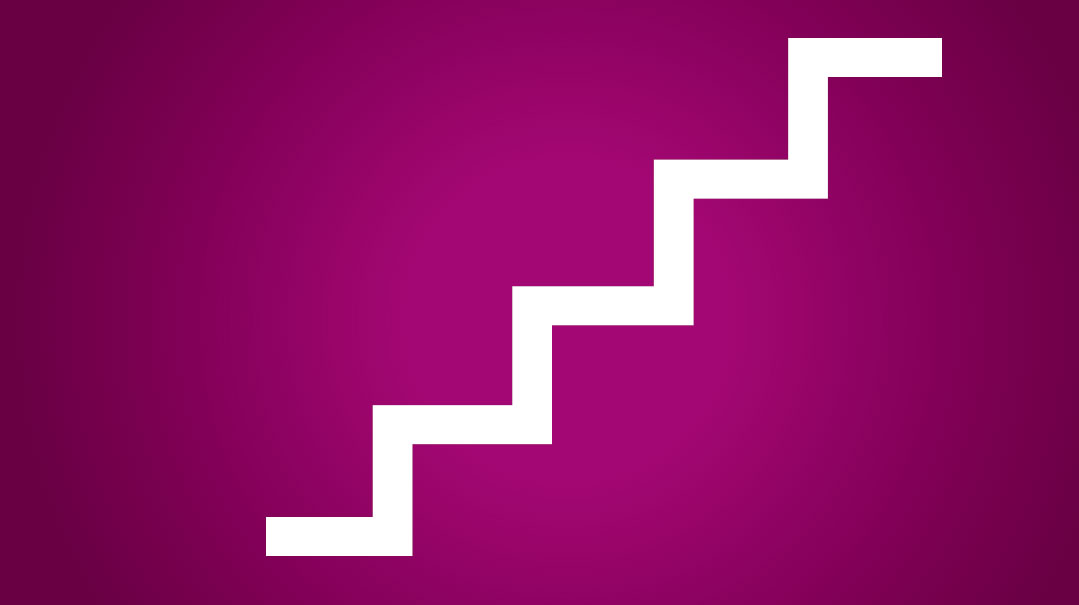Elul Goal: Review
| August 3, 2021Why is repetition such an important part of our avodah?
Av in Review — one step at a time
This month was filled with opportunities for me to focus on “one step at a time.” Between toilet training my three-year-old, dealing with broken appliances, and making multiple trips to government
I realized that the more I worked on being present and focused on the challenge in front of me, the more I developed my patience. I needed patience and stamina to wait out what could be a very long haul — while never losing sight of the ultimate goal.
Elul Goal: Review
Repetition. It has a bad rep. Think about it: when someone tells you you’re being repetitive, do you take it as a compliment? No one wants to hear the same shiur more than once, and no one likes listening to the same song for hours on end. New and fresh are always the most intriguing.
And yet review is highly praised in Judaism. The Gemara (Chagigah 9b) tells us that one who reviews his learning 100 times cannot be compared to one who reviews it 101 times.
My husband shared a powerful idea that furthers this point. Amalek, ayin-mem-lamed-kuf, can be broken down into two Hebrew words: “Amel Kuf,” one who toils 100 times. What is Amalek? One who says, I’ve had enough of this, I’m not trying anymore. There’s no point, and another time will be meaningless. (Contrast this with Moshe Rabbeinu who davened to come into Eretz Yisrael not just repeatedly, but 515 times — and he would have kept on trying had Hashem not asked him to stop.)
Why is repetition such an important part of our avodah?
When I was in seminary, I had a particular class that I found boring, because I’d learned the exact same material in high school. I boldly went to my principal and asked for an exemption. “No,” was his definitive reply.
“But why? What’s the point?” I asked, ready to challenge whatever he might answer.
“I’ll give you three reasons,” he said patiently. “First, don’t be so proud to think that you won’t hear anything new. Second, review can be immensely powerful. You understand concepts in a way you weren’t able to grasp them the first time around. And third, being able to sit through something that does not interest you will strengthen your own middah of patience.”
This conversation, though it took place many years ago, still resonates in my mind as though it were yesterday (partly because I’ve reviewed and retold it so many times.)
I took his words to heart, and I committed myself to gain more from that class. As the teacher spoke, I drew new conclusions and made personal connections to the lessons. I listened carefully enough to realize that he was explaining many of the mefarshim in a slightly different way than I’d heard previously. And, as my principal had suggested, sitting through the most repetitive parts trained me for life — to be able to do what did not come naturally to me, to plough through when it’s uncomfortable.
Review is important because it shows persistence; it demonstrates that we’re not just in it to pass, but to excel. We’re determined to gain everything we can from any single piece of information or experience. Going over a concept again and again reinforces the value in a deeper way every single time we do it.
A teacher once told me that reviewing material actually forms new pathways in the brain that make the information more readily accessible when we need it. I don’t need a degree in neuroscience to tell you that this is true in real life. When I come back from a shiur, and I tell it over to a friend, and I work to recall the many bits and pieces, it’s then that much clearer to me the next time I try to access the lessons.
I toyed with the idea of introducing a new technique for the last month of the year. But then I realized how beautifully appropriate it would be to end off in this month of Elul with the goal of review.
In Elul we do a cheshbon hanefesh, we take a “spiritual inventory,” so to speak, to determine what we’ve done this year and what our goals are moving forward. Often, we associate this with painful memories and harsh realizations.
But an inventory would be pointless if all we noticed was what’s missing. What about reviewing what we have in stock? Why not acknowledge what we’ve learned, acquired, achieved? The more we point out to ourselves the lessons of the past year, the more easily we’ll be able to access them moving forward.
This year, I’ve spent a lot of time coming up with tools and mantras to work on my menuchas hanefesh. They worked for a month, maybe. But how will I make sure that they stay at the top of my toolbox — hopefully for the rest of my life? Review, review, review.
In Elul I want to try and recall my successes and the lessons I’ve learned. I want to take time to notice where I have truly grown and show myself appreciation for that. Positive reinforcement will give me confidence so that I can stay strong where I have excelled and improve where I’ve fallen, keeping me going forward on this journey of life.
This month I will:
Review the key lessons I learned each month of this year.
Ask people I know if they can point out any changes in me they have noticed. Ask myself the same question.
Keep a cheshbon hanefesh journal for one month: At the end of each day, take note of where I used menuchas hanefesh techniques.
Reevaluate what triggers a lack of menuchas hanefesh so I can make new goals for next year.
Menuchas Hanefesh in Review
Tishrei: Save It for later
Tell nagging thoughts, “Not now, later”
Set aside time for distressing topics of conversation or difficult phone calls
Cheshvan: Become a Menuchas Hanefesh Expert
Learn more about how to achieve menuchas hanefesh
Discuss menuchas hanefesh with others
Kislev: Bitachon
Remind myself that I don’t control the situation, Hashem does
Be less rushed or pressured to achieve a particular outcome immediately
Teves: Chill Out
Ask myself: “What’s the worst that will happen?”
Use positive and encouraging self-talk like, “I can do this”
Shevat: Use Your Outlet
Be aware of what activities calm me
Actively engage in hobbies
Adar: Laugh
Imagine how silly this situation will eventually look later on
Don’t resist when others point out the humor
Nissan: Good Guilt
Let go of guilt when it’s not appropriate
Use guilt as an impetus for growth
Iyar: Acceptance
Allow myself to mourn a loss so I can get past it
Get validation from others or myself
Sivan: See Good
Express appreciation to Hashem and to others
Reframe difficult situations in a positive light
Tammuz: No Goal
Plan for less in each day
Shift from goals to enjoying the moment
Av: One Step at a Time
Prioritize and stay focused on the present task
Break things down into small steps
Elul: Review
Give acknowledgment for success
Reinforce good habits
Mindel Kassorla has been advising students — both in Eretz Yisrael and beyond their seminary year — for over a decade. She lives with her husband and children in Jerusalem.
(Originally featured in Family First, Issue 754)
Oops! We could not locate your form.


